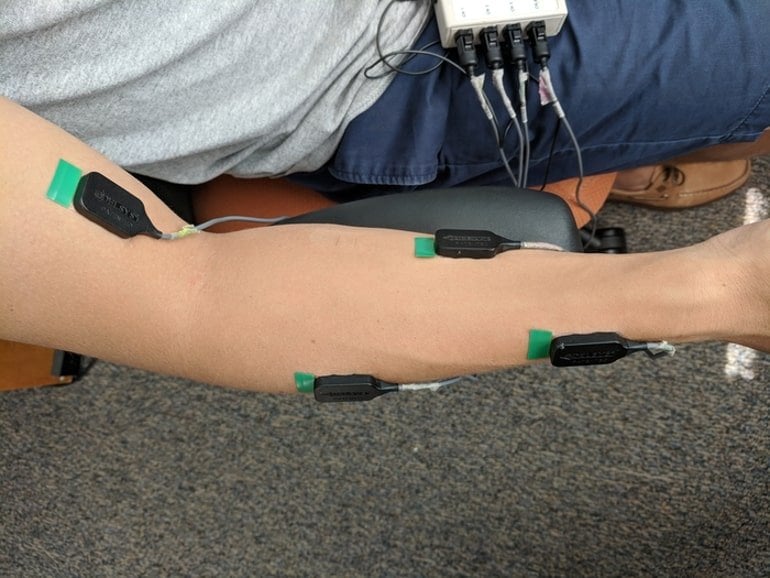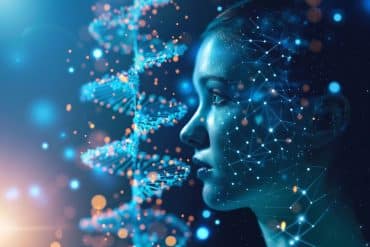Summary: Performance of newly acquired motor skills can be improved by reactivating memories during sleep, a new study finds.
Source: SfN
Practice makes perfect, but sleep helps, too. Learning and executing a new motor skill can be enhanced if you can get additional memory processing during sleep, according to new research published in Journal of Neuroscience.
Researchers at Northwestern University compared how well participants performed a challenging motor task with and without the extra processing during sleep. The participants played a computer game using a myoelectric computer interface, which enabled them to move a cursor by activating specific arm muscles.
Each command to move the cursor in a particular direction was paired with a unique sound; after practicing, the participants played the game blindfolded and moved the cursor based on the sound cue alone.
After completing a test round, the participants took a 90-minute nap. The researchers played half of the sound cues during the nap, reactivating the motor memories associated with each cue.

After the nap, the participants performed the motions cued during sleep better than the uncued ones: it took less time to move the cursor, the cursor traveled a more direct route, and fewer superfluous muscles were activated. These results show we can improve the performance of new motor skills by reactivating memories during sleep.
This approach could be a way to enhance rehabilitation for stroke or other neurological disorders.
About this memory and neuroscience research news
Author: Calli McMurray
Source: SfN
Contact: Calli McMurray – SfN
Image: The image is credited to Cheng et al., JNeurosci 2021
Original Research: Closed access.
“Memory Reactivation During Sleep Improves Execution of a Challenging Motor Skill” by Larry Y. Cheng, Tiffanie Che, Goran Tomic, Marc W. Slutzky and Ken A. Paller. Journal of Neuroscience
Abstract
Memory Reactivation During Sleep Improves Execution of a Challenging Motor Skill
Memory reactivation during sleep reinforces various types of learning. Basic motor skills likely benefit from sleep. There is insufficient evidence, however, on whether memory reactivation during sleep contributes to learning how to execute a novel action. Here, we investigated motor learning in a myoelectric feedback task.
Human male and female participants learned to control myoelectric activity in specific arm muscles to move a computer cursor to each of 16 locations.
Each location was associated with a unique sound. Half of the sounds were played during slow-wave sleep to reactivate corresponding memories of muscle control. After sleep, movements cued during sleep were performed more quickly and efficiently than uncued movements.
These results demonstrated that memory reactivation during sleep contributes to learning of action execution. We conclude that sleep supports learning novel actions, which also maps onto the learning required in certain neurorehabilitation procedures.
SIGNIFICANCE STATEMENT:
Prior literature on motor learning has produced much evidence supporting a role for sleep, but scant evidence on the execution component. This aspect of learning is critical for many complex skills that people value in their lives.
Our results not only implicate sleep in skill learning, but also pinpoint a benefit for motor execution using a method for modifying memory storage during sleep.
We used targeted memory reactivation or TMR, whereby a stimulus that has been associated with learning is presented again during sleep to bring on a recapitulation of waking brain activity.
Our demonstration that memory reactivation contributed to skilled performance may be relevant for neurorehabilitation as well as fields concerned with motor learning, such as kinesiology and physiology.






